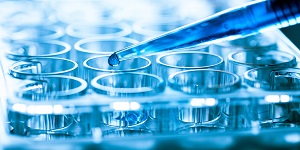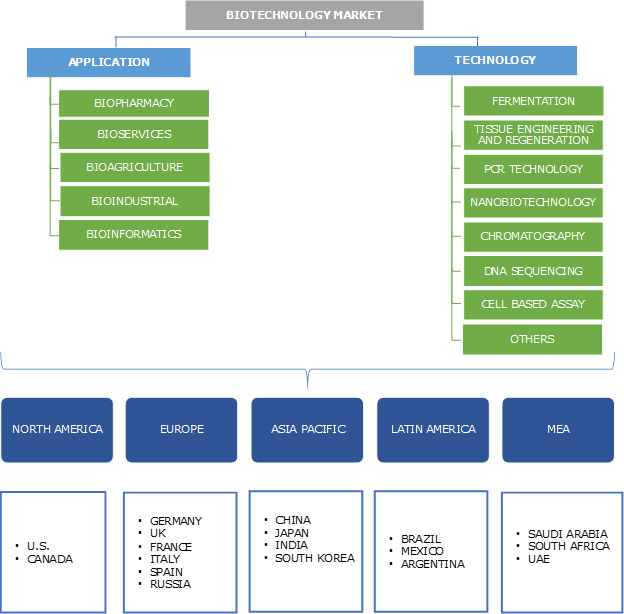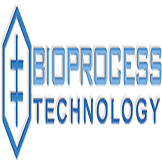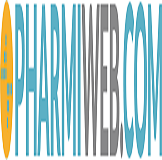
Bioprocess 2019

Theme: Fostering the Use of Biotechnology for the Development of Bioprocessing
3rd Annual Bioprocessing and Industrial Biotechnology Congress commences from October 14-15, 2019 at one of the most attractive city of the world, Brussels, Belgium.
Bioprocess 2019 aims to bring together the professors, researchers, scientists, business giants, and technocrats to provide an international forum for the dissemination of original research results, new ideas and practical development and discover advances in the field of biotechnology, management and education in relation to biotechnology as well as a breadth of other topics. The applications of biotechnology include therapeutics, diagnostics, and genetically modified crops for agriculture, processed food, bioremediation, waste treatment, and energy production. Bioprocess Meeting is an excellent opportunity for the delegates from universities and institutes to interact with the world class scientists.
Biotechnology Congress creates a platform for scientists, representatives and decision makers in biotechnology to share and learn new things.
Submit your research abstract under any session of your interest:
1. Biomaterials & Biocomposites: Biomaterials are those materials engineered to interact with biological systems for medical purpose to augment or replace a natural function. Study of biomaterials is called biomaterials science or biomaterials engineering. Many companies invest huge amounts of money for the development of new products. It holds within elements of medicine, biology, chemistry, tissue engineering and materials science.
Keywords: polymers, ceramics, transplant, nanotechnology, metallurgy, collagen, chitin
Biotechnology Conferences | Industrial Biotechnology Conferences | Industrial Biology | Bioprocess Conference | Biotechnology Meeting | Biotechnology Events | Bioprocess Congress | Biotechnology Congress | Plant Biotechnology Conferences | Agriculture Conference | Bioeconomy Conferences | Biofuels Conferences | Biogas Conferences | Bioenergy Conferences | Plant Biotechnology Conferences | Molecular Biotechnology Conferences | Plant Science Conferences | Bioprocessing Meetings
2. Biopharmaceutical Products: A biopharmaceutical, also known as a biological medical product, or biologic, is any pharmaceutical drug product manufactured in, extracted from, or semi synthesized from biological sources. Different from totally synthesized pharmaceuticals, they include vaccines, blood, blood components, allergenic, somatic cells, gene therapies, tissues, recombinant therapeutic protein, and living cells used in cell therapy.
Keywords: proteins, vaccines, polysaccharides, diagnostics, drugs, medicine, polymerase chain reaction
Biotechnology Conferences | Industrial Biotechnology Conferences | Industrial Biology | Bioprocess Conference | Biotechnology Meeting | Biotechnology Events | Bioprocess Congress | Biotechnology Congress | Plant Biotechnology Conferences | Agriculture Conference | Bioeconomy Conferences | Biofuels Conferences | Biogas Conferences | Bioenergy Conferences | Plant Biotechnology Conferences | Molecular Biotechnology Conferences | Plant Science Conferences | Bioprocessing Meetings
3. Cell Therapy & Processing: Mesenchymal stromal cells (MSC) are multipotent stem cells that have been isolated from tissues and are currently being used to demonstrate their therapeutic efficacy against various clinical indications. Dramatic increase in the use of MSCs for tissue engineering applications and in regenerative medicine in past two decades raises an increasing demand for cGMP (current Good Manufacturing Practice) based large-scale manufacturing process of MSCs and characterization of these cells. Cell therapy bio-processing involves the usage of numerous in-put materials to produce a complex and viable stem cell product. Therefore, developing a unique bio-processing model with novel production process is challenging for the nascent cell therapy manufacturing industries and requires utilizing bioprocessing experiences and solutions for the progressing towards GMP compliance large-scale MSC production.
Keywords: stem cells, cell, tissue, cell therapy, cell culture, tissue culture, cryopreservation, biobanking, next-gen bioprocessing, bone marrow, bioreactor
Biotechnology Conferences | Industrial Biotechnology Conferences | Industrial Biology | Bioprocess Conference | Biotechnology Meeting | Biotechnology Events | Bioprocess Congress | Biotechnology Congress | Plant Biotechnology Conferences | Agriculture Conference | Bioeconomy Conferences | Biofuels Conferences | Biogas Conferences | Bioenergy Conferences | Plant Biotechnology Conferences | Molecular Biotechnology Conferences | Plant Science Conferences | Bioprocessing Meetings
4. Industrial Biotechnology: Industrial biotechnology is the application of biotechnology for industrial purposes, including industrial fermentation. The practice of using cells such as micro-organisms, or components of cells like enzymes, to generate industrially useful products in sectors such as chemicals, food and feed, detergents, paper and pulp, textiles and biofuels. Industrial Biotechnology offers a premier forum bridging basic research and R&D with later-stage commercialization for sustainable bio based industrial and environmental applications.
Keywords: enzymes, industry, biotechnology, chemicals, fermentation
Biotechnology Conferences | Industrial Biotechnology Conferences | Industrial Biology | Bioprocess Conference | Biotechnology Meeting | Biotechnology Events | Bioprocess Congress | Biotechnology Congress | Plant Biotechnology Conferences | Agriculture Conference | Bioeconomy Conferences | Biofuels Conferences | Biogas Conferences | Bioenergy Conferences | Plant Biotechnology Conferences | Molecular Biotechnology Conferences | Plant Science Conferences | Bioprocessing Meetings
5. Fermentation & Bioprocessing: Certain organisms perform fermentation to obtain energy they need to carry on their life processes. Many of the fermentation processes result in products like enzymes that are important in medicine, food preparation, and other fields. Fermentation has two parts: upstream and downstream. The upstream part of a bioprocess refers to the first step in which microbes/cells are grown, e.g. bacterial or mammalian cell lines (see cell culture), in bioreactors. After product development, the next step is the purification of product for desired quality, which is done in downstream processing.
Keywords: upstream processing, downstream processing, purification, contamination, cell culture
Biotechnology Conferences | Industrial Biotechnology Conferences | Industrial Biology | Bioprocess Conference | Biotechnology Meeting | Biotechnology Events | Bioprocess Congress | Biotechnology Congress | Plant Biotechnology Conferences | Agriculture Conference | Bioeconomy Conferences | Biofuels Conferences | Biogas Conferences | Bioenergy Conferences | Plant Biotechnology Conferences | Molecular Biotechnology Conferences | Plant Science Conferences | Bioprocessing Meetings
6. Food technology & processing: The functional foods market represents one of the fastest growing and most fascinating areas of investigation and innovation in the food sector. There are various recent findings, new research trends, and emerging technologies in bioprocessing focusing on use of microorganisms in the production of food with health and nutritional benefits. There are emerging applications of microorganisms in safe food production, which is part of microbial bioprocessing.
Keywords: microorganisms, microbial bioprocessing, food, beverages, whey, protein, supplements, additives, nutrition, nutritional foods
Biotechnology Conferences | Industrial Biotechnology Conferences | Industrial Biology | Bioprocess Conference | Biotechnology Meeting | Biotechnology Events | Bioprocess Congress | Biotechnology Congress | Plant Biotechnology Conferences | Agriculture Conference | Bioeconomy Conferences | Biofuels Conferences | Biogas Conferences | Bioenergy Conferences | Plant Biotechnology Conferences | Molecular Biotechnology Conferences | Plant Science Conferences | Bioprocessing Meetings
7. Biofuels & Biorefinery: Advanced biofuels are fuels that can be processed from numerous types of biomass. First generation biofuels are processed from the sugars and vegetable oils formed in arable crops, which can be smoothly extracted applying conventional technology. Biorefining is the efficient processing of biomass into a wide range of marketable products and energy. By producing multiple products; a biorefinery can take advantage of the differences in biomass components and intermediates and maximize the value derived from the biomass feedstock.
Keywords: biomass, anaerobic process, digestion, living matter, agriculture
Biotechnology Conferences | Industrial Biotechnology Conferences | Industrial Biology | Bioprocess Conference | Biotechnology Meeting | Biotechnology Events | Bioprocess Congress | Biotechnology Congress | Plant Biotechnology Conferences | Agriculture Conference | Bioeconomy Conferences | Biofuels Conferences | Biogas Conferences | Bioenergy Conferences | Plant Biotechnology Conferences | Molecular Biotechnology Conferences | Plant Science Conferences | Bioprocessing Meetings
8. Plant Biotechnology: Plant Biotechnology is a set of techniques used to adapt plants for specific needs or opportunities. Plant Biotechnology applies technological methods to biological organisms. It can also be defined as the introduction of desirable traits into plants through genetic modification.
Keywords: genetically modified plants, GMOs, plant, pomato, golden rice, genetics, recombinant DNA technology
Biotechnology Conferences | Industrial Biotechnology Conferences | Industrial Biology | Bioprocess Conference | Biotechnology Meeting | Biotechnology Events | Bioprocess Congress | Biotechnology Congress | Plant Biotechnology Conferences | Agriculture Conference | Bioeconomy Conferences | Biofuels Conferences | Biogas Conferences | Bioenergy Conferences | Plant Biotechnology Conferences | Molecular Biotechnology Conferences | Plant Science Conferences | Bioprocessing Meetings
9. Agricultural Biotechnology & Agro-forestry: Agricultural biotechnology is a collection of scientific techniques used to improve plants, animals and microorganisms. Agroforestry is an activity that combines production on the same plot of land, from annual agricultural activities (such as crops and pasture) and from delayed long-term production by trees.
Keywords: farming, forestry, pesticides, insecticides, resistance, fertilizers
Biotechnology Conferences | Industrial Biotechnology Conferences | Industrial Biology | Bioprocess Conference | Biotechnology Meeting | Biotechnology Events | Bioprocess Congress | Biotechnology Congress | Plant Biotechnology Conferences | Agriculture Conference | Bioeconomy Conferences | Biofuels Conferences | Biogas Conferences | Bioenergy Conferences | Plant Biotechnology Conferences | Molecular Biotechnology Conferences | Plant Science Conferences | Bioprocessing Meetings
10. Molecular Biosensing & Biorobotics: A biosensor is an analytical device, used for the detection of an analyte that combines a biological component with a physicochemical detector. The sensitive biological element (e.g. tissue, microorganisms, organelles, cell receptors, enzymes, antibodies, nucleic acids, etc.) is a biologically derived material or biomimetic component that interacts (binds or recognizes) with the analyte under study. The biologically sensitive elements can also be created by biological engineering. The transducer or the detector element (works in a physicochemical way; optical, piezoelectric, electrochemical, etc.) transforms the signal resulting from the interaction of the analyte with the biological element into another signal (i.e., transduces) that can be more easily measured and quantified.
Keywords: tissue, organelles, nucleic acids, cell receptors, antibodies, transducer, antigen, analyte, biotransducer, biocompatibility, nanoparticles, DNA biosensors
Biotechnology Conferences | Industrial Biotechnology Conferences | Industrial Biology | Bioprocess Conference | Biotechnology Meeting | Biotechnology Events | Bioprocess Congress | Biotechnology Congress | Plant Biotechnology Conferences | Agriculture Conference | Bioeconomy Conferences | Biofuels Conferences | Biogas Conferences | Bioenergy Conferences | Plant Biotechnology Conferences | Molecular Biotechnology Conferences | Plant Science Conferences | Bioprocessing Meetings
11. Bioeconomy: The bioeconomy is an economy using biological resources from the land and sea, as well as waste, as inputs to food and feed, industrial and energy production. It also covers the use of bio-based processes for sustainable industries. Bio-waste for example has considerable potential as an alternative to chemical fertilizers or for conversion into bio-energy, and can meet 2% of the EU renewable energy target. In Europe today the bioeconomy is already worth more than 2 trillion euros annually and employs over 22 million people (9% of the total). It includes primary production, such as agriculture, forestry, fisheries and aquaculture, and industries using/ processing biological resources, such as the food and pulp and paper industries and parts of the chemical, biotechnological and energy industries. Each euro invested in EU-funded bioeconomy research and innovation in 2012 is estimated to trigger 10 euros of value added in bioeconomy sectors by 2025.
Keywords: biotechnology industry, GenBank, DDBJ, EMBL, biogas, biomass, biorefinery, bioplastic, biomedical devices
Biotechnology Conferences | Industrial Biotechnology Conferences | Industrial Biology | Bioprocess Conference | Biotechnology Meeting | Biotechnology Events | Bioprocess Congress | Biotechnology Congress | Plant Biotechnology Conferences | Agriculture Conference | Bioeconomy Conferences | Biofuels Conferences | Biogas Conferences | Bioenergy Conferences | Plant Biotechnology Conferences | Molecular Biotechnology Conferences | Plant Science Conferences | Bioprocessing Meetings
Biotechnology Industry Background
Biotechnology Market size was valued at USD 399.4 billion in 2017 and is expected to witness 9.9% CAGR from 2018 to 2024.

Reference: Global Market Insights
Surging incidence of chronic ailments such as diabetes and cancer worldwide will increase the demand for biotechnology products over the forecast timeframe. According to the International Diabetes Federation, in 2017, diabetes affected more than 425 million individuals worldwide and is estimated to rise up to 629 million by 2045. Additionally, the proportion of type 2 diabetes in people is rising in many countries thereby, such high proportions are expected to boost the market growth.
Wide-ranging applications coupled with growing demand for effective drugs and vaccines should favour business growth. Improving healthcare access in areas of unmet medical needs and growing R&D expenses for biotechnology advances will spur revenue size. Moreover, rising demand for agriculture based products and growing demand for biotechnology practices in clinical research will endure to foster biotechnology industry growth. However, risks associated to genetic information can hinder the market growth in upcoming years.
Biotechnology Market, By Application
Biopharmacy segment dominated the overall market and accounted for 61.7% revenue share in 2017. Biopharmacy segment is anticipated to grow in forthcoming years due to increasing usage of bio-recombinant proteins in several vaccines to treat numerous diseases. Biopharma companies focus on advancement of personalized medicines that should further boost segmental growth.
Bioindustrial segment is projected to show significant CAGR of 9.3% over the analysis timeline. High segmental growth is attributed to rising usage of bio enzymes and biochemical for various chemical procedures.
Biotechnology Market, By Technology
Tissue engineering and regeneration segment was valued USD 123.4 billion in 2017 and is projected to show similar trend during the forecast period. Increasing demand for tissue engineering and regeneration coupled with advances in tissue engineering filed boosts segmental growth.
PCR technology segment held substantial revenue share in 2017 and is projected to witness 9.3% CAGR over forthcoming years. Widespread applications of PCR technology in the field of life science, forensic science and clinical diagnostics that is expected to foster business growth.
Biotechnology Market, By Region
U.S. market was valued at USD 96.4 billion in 2017 and will grow considerably during the forecast timeline due to growing prevalence of chronic ailments. As per Center for Chronic Disease Prevention (CDC) updated October 2018 data, 6 in 10 adults in the U.S. have a chronic disease. Favorable government policies and ongoing technological advancements will accelerate biotechnology industry growth.
China market is projected to witness substantial CAGR of 10.6% during the forecast period. High growth is attributable to increasing incidence of chronic diseases as well as innovative technologies in biotechnology sector. Furthermore, growing demand for bioagriculture products and rising population base is anticipated to upsurge revenue size.
Leading Biotechnology Companies
Some of the prominent business players operational in biotechnology market include Abbott Laboratories, Agilent Technologies, Amgen, Biogen Scientific, Bio-Rad Laboratories, Danaher, F. Hoffmann-La Roche, Illumina, Merck, PerkinElmer, Qiagen and Thermo Fisher Scientific. These business players implement strategic initiatives such as merger, new product launch and acquisitions to uphold their position in the market and strengthen their product offerings. For instance, May 2018, Illumina announced that it acquired Edico Genome that is a provider of data analysis speeding up solutions for next-generation sequencing (NGS). This acquisition is aimed to reduce time required for results.
Conclusion
The field of biotechnology can trace its accurate birth back to the beginning of civilization. When early man discovered ability to ferment grains to prepare alcoholic brews and also learned the utility of cross-pollinating harvests with the aim to produce novel hybrid strains being the most primitive form of genetic engineering.
In modern period, scientists have nearly all rudimentary tools accessible for their applications. Through these tools mainstream of basic ideas were expounded; that accelerated the track to imperative scientific discoveries. These discoveries and studies have infinite applications and implications. Biotechnology has both destructive and beneficial potential. Opting it for humanity will bring major advances over the coming years.
- Biomaterials and Biocomposites
- Biopharmaceutical Products
- Cell Therapy & Processing
- Industrial biotechnology
- Fermentation & Bioprocessing
- Food technology & processing
- Biofuels & Biorefinery
- Plant Biotechnology
- Agricultural Biotechnology & Agro-forestry
- Molecular Biosensing & Biorobotics
- Bioeconomy
- Journal of Biochemical Engineering & Bioprocess Technology
- Advances in Genetic Engineering & Biotechnology


























































































































